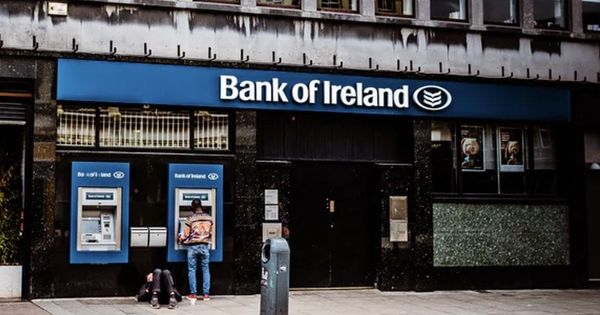Bank of Ireland fined €1.66 million after being tricked by fraudster

One of Ireland’s largest banks, Bank of Ireland, has been fined almost €1.7 million after regulators discovered it had failed to inform financial regulators and the police after a fraudster tricked them into transferring funds from a client’s account.
In September 2014, a fraudster impersonated a client of Bank of Ireland’s former subsidiary, Bank of Ireland Private Banking Limited (BOIPB), and tricked the bank into making transferring a total of €106,430 (approximately US $125,000) from the client’s personal current account and the bank’s own funds into a UK bank account.
The fraudster had hacked into the victim’s email account to request the money transfers from the bank.
Astonishingly, the bank released confidential details related to the account to the fraudster without requiring them to answer any security questions. Furthermore, the bank did not call the client using the contact telephone number on its database to confirm the request for the money transfer.
That, obviously, is bad enough.
The client who had money stolen from their account had it immediately reimbursed by Bank of Ireland, but the fraud was not reported to the Central Bank of Ireland or police.
Indeed it was over a year later before Central Bank discovered a reference to the incident in Bank of Ireland’s logs, demanded more details, and insisted that the fraud should also be reported to the police.
A subsequent investigation by Central Bank found “serious deficiencies” in how Bank of Ireland handled third-party payments:
- Inadequate systems and controls to minimise the risk of loss from fraud
- Inadequate governance, oversight and ongoing review of the systems and control environment
- Lack of staff training and a culture in which fulfilling clients” instructions was given primacy over security and regulatory requirements
- Lack of compliance monitoring.
The Central Bank of Ireland went on to say that BOIPB’s “failure to be open and transparent had the effect of misleading the Central Bank in the course of the investigation,” and that it had failed for 19 months to disclose an internal report created after the incidenty which revealed systemic failings.
According to the Central Bank of Ireland report, the problems related to third-party payments were only fixed 17 months after the incident, and even then only after the Central Bank intervened.
“BOIPB”s failure to put appropriate safeguards in place exposed BOIPB and its clients to the serious and avoidable risk of cyber-fraud. That risk crystallised twice,” Seána Cunningham, the Central Bank”s director of enforcement and anti-money laundering, was reported as saying to the Irish Times. “BOIPB then failed to report the cyber-fraud to An Garda SÃochána, which is a serious matter. Reporting illegal activity is essential in the fight against financial crime.”
There’s not a huge amount you or I can do but trust the banks who look after our financial accounts to do a decent job of securing them from fraudsters. And we also trust them to work closely with law enforcement agencies and regulators when a security breach occurs.
What is somewhat under our control, however, is to better secure our email accounts – using strong, unique passwords and multi-factor authentication. Taking steps like that can help make it much harder for fraudsters to take their first steps towards emptying our bank accounts.
That’s no excuse for Bank of Ireland, however. They should have been following proper procedures to ensure that the money transfer was authorised by a the real holder of the account – and they definitely shouldn’t have tried to hide what happened from regulators and the police.
tags
Author
Graham Cluley is an award-winning security blogger, researcher and public speaker. He has been working in the computer security industry since the early 1990s.
View all postsRight now Top posts
Outpacing Cyberthreats: Bitdefender Together with Scuderia Ferrari HP in 2025
March 12, 2025
Streamjacking Scams On YouTube Leverage CS2 Pro Player Championships to Defraud Gamers
February 20, 2025
How to Identify and Protect Yourself from Gaming Laptop Scams
February 11, 2025
Your Device ‘Fingerprint’ Will Go to Advertisers Starting February 2025
December 24, 2024
FOLLOW US ON SOCIAL MEDIA
You might also like
Bookmarks








